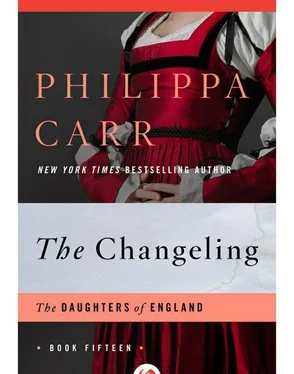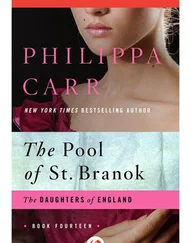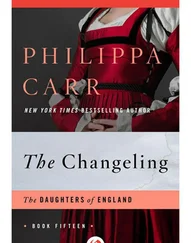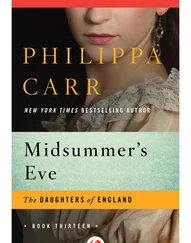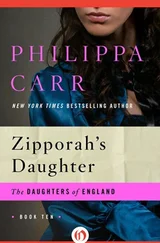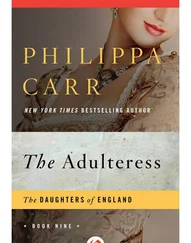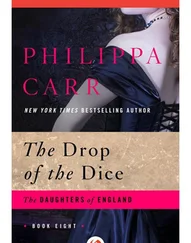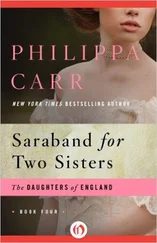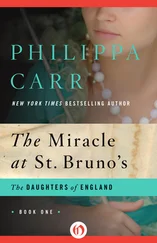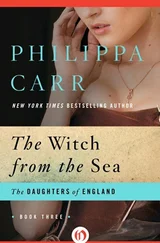Philippa Carr
The Changeling
I WAS TEN YEARS old when my contented life was disrupted by my mother’s marriage to Benedict Lansdon. Had I been older, more experienced of life, I should have seen the inevitability of it. But there I was, happy and snug in my little world, my mother the center of my life—as I believed I was of hers—and it did not occur to me that there could be an intruder to disturb us.
It was not as though he were a stranger to me. He had been there almost as long as I could remember—a rather flamboyant figure in the background, and that was where I wanted, and expected, him to remain.
He had been present on the Australian goldfields when and where I was born. In fact my arrival had actually taken place in his house.
“Mr. Lansdon,” my mother explained, “was different from the rest of the miners. He owned a moderately successful mine and he employed men who had given up trying on their own. We all lived in shacks. You never saw the likes unless it was the hut in the woods where that old tramp stayed last winter. Quite unsuitable for babies! And it was decided you should be born in his house. Pedrek was born there too.”
Pedrek Cartwright was my greatest friend. His parents lived in London but his grandfather owned Pencarron Mine which was near Cador, my grandparents’ home in Cornwall—so we were often together both in London and Cornwall. If his parents were not going to Cornwall and we were going to see my grandparents, he travelled with us; and my mother was very friendly with his parents in London; so we were really like one family.
Pedrek and I used to play at gold mining when we were smaller. There was a great bond between us because we had both been born in a mining township on the other side of the world—and in the house of Mr. Benedict Lansdon.
I should have guessed what was happening because when my mother spoke of Benedict Lansdon her voice would change, her eyes would sparkle and her mouth smile. But I did not attach any significance to that at the time.
Not that it would have made any difference. I should have hated it just the same, but if I had been prepared, it would not have been such a shock.
It was not until after the marriage that I realized how good life had been. I had taken so much for granted.
There had been my happy life in London not far from the park where I would go each morning with my governess, Miss Brown, to walk though the paths under the great trees-chestnut, oak and beech. We would sit with the other nannies to whom Miss Brown wanted to chat while I played with their children. We would feed the ducks on the pond and run about on the expanse of grass which was there for that purpose.
I loved the shops; there was a market some little distance from us and I was sometimes taken there on winter afternoons with Miss Brown. How exciting it was to wander among the crowds and watch the people at their stalls, particularly when it began to get dark and the naphtha flares were lighted. Once we ate jellied eels at a stall about which Miss Brown was a little uneasy because she thought it unsuitable; but I cajoled her. I loved to see the ladies in their wonderful clothes and the gentlemen in their top hats and morning coats. I loved winter evenings when we sat by the fire and listened for the muffin man’s bell when Emmy our maid would run out with a dish and buy some which my mother and I would toast by the fire.
They were happy days which I thought would go on for ever, because I was then unaware of Benedict Lansdon lurking in the background, just wailing for the appropriate time to change it all.
When the trees in the Park began to bud, and even the one in our little square garden showed signs of a few inedible pears that it might in due course produce, my mother would say: “It is time we went to Cornwall. I’ll speak to Aunt Morwenna. I wonder what their plans are this year?”
Aunt Morwenna was Pedrek’s mother, and my mother and I would go to their house which was not very far from ours and Pedrek would take me up to his room to show me his new puppy or some toy he had just acquired; we would talk of Cornwall and what we would do when we arrived there—he to his grandparents, me to mine.
There would follow the excitement of the train. Pedrek and I would endeavor to have a window to ourselves; we would shriek to each other to look at this and that as the train rushed by meadows, streams and woodlands before pulling into the stations.
And at the end of this journey there would be our grandparents waiting for us and making us feel that it was the most wonderful thing that could happen because we were coming to be with them. Then Pedrek would go on his way to Pencarron and I to Cador.
Cador, that most magnificent and exciting house, had been the home of Cadorsons for hundreds of years. There were no Cadorsons there now. The name had died out when my great-grandfather Jake Cadorson and his son Jacco were drowned in Australia and the house had passed to my grandmother who had married Rolf Hanson. I always thought it was a pity the name had died out, for Cadorsons would have been so appropriate at Cador.
Thankfully, however, the house was still in the family; and although my grandfather had come to it through marriage, he loved it, I believe, more than any other member of the family did.
I could understand his feelings for it. There it stood—grey stone, with its towers and turrets, like a medieval fortress. When I was alone in the big lofty rooms, I could imagine myself back hundreds of years. It was exciting and when I was young rather frightening; but there was always the reassuring presence of my mother and my grandparents. My grandfather would tell exciting stories of the past involving roundheads and cavaliers, of storms and shipwrecks and of adventurers who had gone off to the hitherto undiscovered places of the world.
I loved Cador. There the days seemed longer and the sun seemed to shine for days on end. And when the rain came it was just as exciting. I loved the sea. Sometimes we would be allowed to take a little trip on it, but my grandmother never liked that. She could not forget that her parents and brother had been drowned.
I used to go down to the two towns of Poldorey with my mother and grandmother. We would stroll past the cottages on the quay and watch the fishermen mending their nets or talking about the catch. Sometimes I would go down with Mr. Yeo, the butler, to buy fish. I was fascinated by the fishes squirming on the weighing machine which was spattered with silver scales. I would listen to the fishermen’s talk. “ ’Twas a good catch today, ’Arry. The Lord calmed down them old waves, ’e did and all.” At other times it was a gloomy story. “No fish today. Jesus Christ Himself wouldn’t venture out on a sea like this.” I knew most of them by name—Tom, Ted, Harry. Some of them had grand-sounding names: Reuben, Solomon, Japheth, Obediah … names taken from the Bible. Most of the families had been ardent Wesleyans since John and Charles Wesley had roamed through Cornwall bringing its people to righteousness.
Cador was about a quarter of a mile from the two towns East and West Poldorey which were separated by the River Poldor and were connected by an ancient bridge. I loved the steep streets of the town which wound up to the clifftop where one could look out across the sea. There was a wooden seat so that people might sit and rest after the climb and there I would sit with my grandfather and persuade him to tell me stories of smugglers and wreckers who lured ships to disaster along this coast. I would search on the beach for the semi-precious stones which were reputed to be found there, but the only ones I ever saw were in the window of Mr. Bander’s shop, marked with the inscription “Found on Poldorey Beach.”
Читать дальше
